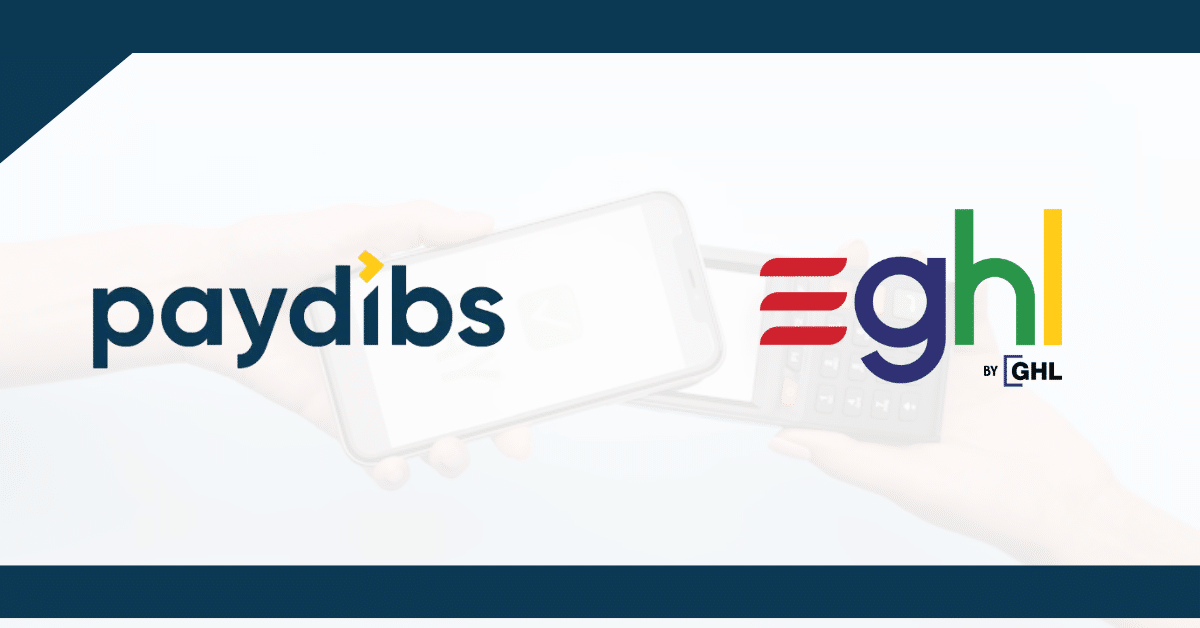For any growing business in Malaysia, having the right payment gateway goes beyond accepting that DuitNow QR or that card swipe.
It’s about smooth operations, happy customers, and solid financial control. Options are important and when it comes to discussing payment gateway Malaysia, there are a lot of them in the market.
Today, we are going to compare two of them, eGHL and Paydibs. Both offer ways to process transactions, but each of them have their own strengths and specialties.
This article will provide a clear, unbiased comparison to help you decide which is the better fit for your specific needs.
Paydibs: Flexible and Custom-Built for Hybrid Needs
Paydibs is a Malaysian-based fintech player with BNM regulation and MSC status. It serves businesses with both online and offline transaction needs, offering deep customisation for enterprise setups alongside straightforward online collection tools.
Feature | Online | Terminal (Rent) | Terminal (Buy) | Mobile App |
Signup Fee | FREE** | FREE | FREE | FREE |
Annual/Yearly Fee | RM 300* | N/A | RM 120 | N/A |
Terminal Cost | N/A | RM 40/month | RM 480 (one-time) | N/A |
Maintenance Fee | RM 300* | N/A | N/A | FREE |
Refundable Deposit | N/A | RM 500 | N/A | N/A |
Online Banking (FPX) | Yes | No | No | No |
Credit/Debit Card | Yes | Yes | Yes | No |
BNPL / Installments | Yes | Yes | Yes | Yes |
International Payments | Yes | Yes | Yes | No |
- *Maintenance can be waived with annual volume of RM 360,000 or more.
- **Signup is free for local merchants; international merchants may incur USD 120.
- **Transaction fees for FPX, cards, and wallets are percentage-based—exact rates vary by volume.
Highlights of Paydibs:
- Multichannel Coverage: Online checkout, smart terminals, and mobile app payments.
- Local & International Acceptance: Supports Amex, Visa, Mastercard, FPX, QR payment, and local e-wallets such as Touch n’ Go, GrabPay and Boost.
- Custom Integrations: API, SDK, and white-label options for complex systems.
- Strong Security Measures: PCI-DSS compliance, tokenization, and encryption standards.
- Fast Payouts: Payouts often processed in T+1 or T+2 days, faster than industry norms.
eGHL: Regional Reach with Strong Infrastructure
eGHL, a subsidiary of GHL Systems Berhad, is a popular payment gateway in Southeast Asia. Known for its regional capabilities, eGHL is widely used by businesses that need a reliable and scalable solution that works both locally and internationally.
Plan / Service | Fee Type | Rate / Amount |
Setup Fee | One-time | FREE |
Annual Fee | Recurring | RM 499 (may vary) |
FPX (Online Banking) | Per transaction | 1.5% |
Credit/Debit Cards (Local) | Per transaction | 2.5% |
Credit/Debit Cards (Foreign) | Per transaction | 3.5% |
E-Wallets (e.g. GrabPay) | Per transaction | ~2.5% |
Settlement Speed | Bank Transfer | T+2 working days |
Disclaimer: Payment gateway pricing can change and may depend on your specific business type, expected transaction volume, and any custom agreements. We strongly advise you to contact Paydibs and eGHL directly for a personalised, up-to-date quote to confirm accuracy or consultation. This information is for general comparison purposes only.
Highlights of eGHL:
- Regional Acceptance: Accept payments from MY, TH, ID, SG customers in local currencies.
- Extensive Local Support: FPX, e-wallets, card payments, and installment plans (BNPL).
- E-Commerce Ready: Compatible with WooCommerce, Magento, OpenCart, Shopify, and more.
- Fraud Management: Includes real-time risk scoring, 3D Secure, and tokenization.
- API and SDK Tools: Full developer access for custom integrations such as for accounting software.
- Multi-Currency Support: Ideal for businesses targeting ASEAN and global markets.
Direct Comparison: Paydibs vs eGHL
Feature | eGHL | Paydibs |
Focus Area | Online + regional payments | Online + physical (omni-channel) |
FPX Fees | 1.5% | % based (typically competitive) |
Card Fees (Local) | ~2.5% | ~2.2% |
Setup Fee | Free | Free (local merchants) |
Annual/Maintenance Fees | RM 499/year (can vary) | RM 300/year (can be waived) |
Terminal Support | No | Yes (rent or buy) |
BNPL Support | Yes (via partners) | Yes (core offering) |
International Payments | Yes (strong multi-currency support) | Yes |
Settlement Speed | W+4 days | T+1 to T+2 days |
Integrations | WooCommerce, Shopify, APIs | Custom API, SDK, plugins, terminals |
Customer Support | Mon-Fri, Business Hours | 24/7 hotline + developer assistance |
Security Features
“A reliable payment gateway isn’t just about processing transactions; it’s about peace of mind. Robust security and responsive support are truly invaluable.”
eGHL: They hold PCI DSS Level 1 certification, which is the highest standard for payment security compliance globally. They are also regulated by Bank Negara Malaysia (BNM), ensuring they adhere to local financial regulations.
Paydibs: Also adheres to strict security standards and is PCI DSS compliant. They provide essential fraud prevention tools and are regulated by Bank Negara Malaysia (BNM), ensuring a safe environment for your digital transactions.
Customer Support
eGHL: Offers structured customer service through email and phone, providing a reliable point of contact for inquiries and technical issues.
Paydibs: Is frequently highlighted for its responsive and more personalised 24/7 customer support. This can be a notable advantage for SMEs who might appreciate more direct and tailored assistance when it comes to the payment terminal.
Other Unique Payment Gateway Features
eGHL
- Recurring Payments: Perfect for subscription-based businesses or services that require regular billing.
- Credit Card Instalment Payments: Allows your customers the flexibility to pay for larger purchases in instalments, which can boost sales conversion.
- Payment Link: A straightforward tool to generate quick payment links for invoicing, manual orders, or selling through social media.
They also offer physical payment machine solutions, catering to a broader range of retail needs.
Paydibs:
- Hybrid Payment Solutions: A standout strength, offering services for both online payment gateway needs and robust offline payment scenarios.
- All-in-One Smart Terminals: These are available for either rent or purchase, making them suitable for traditional brick-and-mortar retail stores and temporary pop-up shops.
- Mobile App for QR Payments: This innovative feature allows businesses to accept various e-wallet and DuitNow QR payments directly from a smartphone or tablet, removing the need for dedicated hardware and offering great flexibility.
This makes Paydibs an excellent choice for businesses with both e-commerce and physical retail presences.
Read more: Paydibs vs Gkash: Who is the Best Payment Gateway Malaysia in 2025?
Who is the Best Payment Gateway Malaysia?
Making the right choice depends entirely on your specific business needs, expected transaction volume, growth ambitions, and operational preferences. Here’s our expert recommendation:
Choose eGHL if:
- You represent an established enterprise or a high-volume online store with substantial turnover.
- Your priority is a globally recognised, incredibly robust, and feature-rich payment solution with extensive international capabilities.
- Your business regularly handles a significant number of international transactions and requires advanced fraud management features.
- You are prepared for a higher initial setup cost and are comfortable with a weekly settlement period.
Choose Paydibs if:
- You are a startup, SME, or an entrepreneur looking to minimise initial costs with their compelling zero signup fee.
- Cash flow is paramount to your operations, and you would greatly benefit from faster daily settlements (T+1/T+2).
- Your business model involves both online sales (e-commerce) and physical retail (an offline store, vending machines, or pop-ups), and you need an integrated solution that supports both, like their smart payment terminals or a mobile app for QR payments.
- You aim for competitive e-wallet transaction fees and value highly responsive local support.
Essential Factors for Your Payment Gateway Decision
While analysing fees and features is important , a complete approach to choosing your payment processor also involves considering these important additional elements:
- Scalability: Can the payment infrastructure easily accommodate your future business growth and any increase in transaction volume?
- Reporting & Analytics: Does the gateway provide intuitive dashboards and comprehensive data? This is key for tracking sales performance, refunds, and chargebacks effectively.
- Developer Experience: If you have a technical team, how user-friendly and well-documented are their APIs and SDKs?
- Contract Terms: Always understand any lock-in periods, potential termination fees, or specific clauses in their service agreements.
Your Informed Digital Payment Strategy
Both eGHL and Paydibs are highly capable and reputable payment gateway providers in the Malaysian market. Each brings unique strengths to the table.
Ultimately, the “best” payment solution is subjective. It depends precisely on your business model, your anticipated transaction volume, your specific cash flow requirements, and whether your primary focus is purely online, exclusively offline, or maybe a hybrid approach.
Take the time to evaluate your unique circumstances against the detailed comparison provided. But if you find these two payment gateways don’t meet your requirements, don’t worry!
Our Top 10 Payment Gateway in Malaysia provides more detailed information about the best payment payment terminal in our country.
Legal Disclaimer:
All brand names, trademarks, and logos displayed on this website are the intellectual property of their respective owners. Their use herein is solely for descriptive and identification purposes. This website makes no claim of ownership, endorsement, or official association with any of the mentioned brands unless expressly stated.
Frequently Asked Questions About Paydibs vs eGHL
Paydibs may be more flexible for startups due to its waived maintenance fees if a certain threshold is met, while eGHL’s fixed annual fee applies regardless of volume.
Yes. Paydibs offers a dedicated mobile app for in-person payments, while eGHL can be integrated into mobile apps using their APIs.
Yes. Both platforms support BNPL through partners, with Paydibs offering it as a native option for both online and offline channels.
eGHL offers Dynamic Currency Conversion, letting international customers see prices and pay in their own currency. Paydibs does not advertise DCC prominently.
eGHL offers integrations with some platforms via plugins or API. Paydibs supports custom integration with accounting systems through its API.
Yes. Both platforms support payment links, allowing merchants to send customers a clickable URL for direct payment. Ideal for invoicing or social selling.















